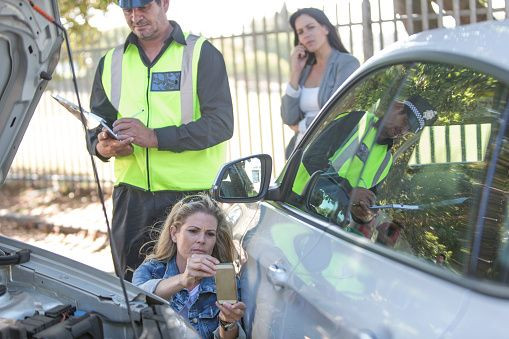Is It Legal To Record Police On Duty? Philadelphia Federal Court Says It Is First Amendment Right

A Federal Court of Appeal in Philadelphia on Thursday ruled police can be filmed while they are carrying out their duties in public, according to a press release issued by the American Civil Liberties Union. While the decision is not the first of its kind, it is a significant landmark as it is now legal in a majority of the states in the U.S. to film the police on First Amendment grounds.
The court’s ruling came after hearing the case of Rick Fields who was arrested in 2013 when he recorded Philadelphia police breaking up a party and the detention of Amanda Geraci who was kept in custody by the city’s police while observing and photographing an anti-fracking protest outside the Pennsylvania Convention Center in 2012.
Read: Can The President Block Twitter Users From Following Him? First Amendment Suggests He Cannot
This judgment overturned the verdict of a previous federal trial court which said that there was no constitutional right to video record police when the act of recording is unaccompanied by “challenge or criticism” of the police conduct. The court did not decide back then whether there would be such a right if the challenge or criticism were present, says a 2016 Washington Post report about the verdict.
The three-judge panel of the United States Court of Appeals for the Third Circuit also acknowledged that the First Amendment right was established by five other appeals courts in cases similar to Fields’ and Geraci’s. According to the Washington Post, the decision makes it clear that the First Amendment right to record the police is clearly established in the Third Circuit.
While it is indeed legal under the First Amendment to photograph, film or record police officers going about their duties in public, the court also concluded that plaintiffs engaged in conduct only (the act of making a recording) as opposed to expressive conduct (using the recording to criticize the police or otherwise comment on officers’ actions) do not face criminal penalties.
Another setback to such civil rights suits is that law enforcement agents are protected by the qualified immunity doctrine, meaning that they cannot be sued for acting in a manner they reasonably believed to be lawful.
The First, Fifth, Seventh, Ninth, and Eleventh Circuit courts that have addressed this issue over the years have held that there is a First Amendment right to record police activity in public.
Watch: Video Captures Police Officers Rescuing Dogs From 167-Degree Car
According to a 2015 report in NPR, eyewitnesses can film police activity as long as you do not cause interference to the police’s duty of law enforcement. While it is not clear what actions can be called ‘interference’, the gray area includes determining at what distance the eyewitnesses should stand with their cameras so as to not get in the way of police.
The matter has taken a center stage as an increasing number of video clips of police encounters with unarmed black men and women have begun to circulate rapidly on social media. The initiation of the Black Lives Matter movement can also be attributed to this increasing role of technology in law enforcement by the police.
© Copyright IBTimes 2024. All rights reserved.





















